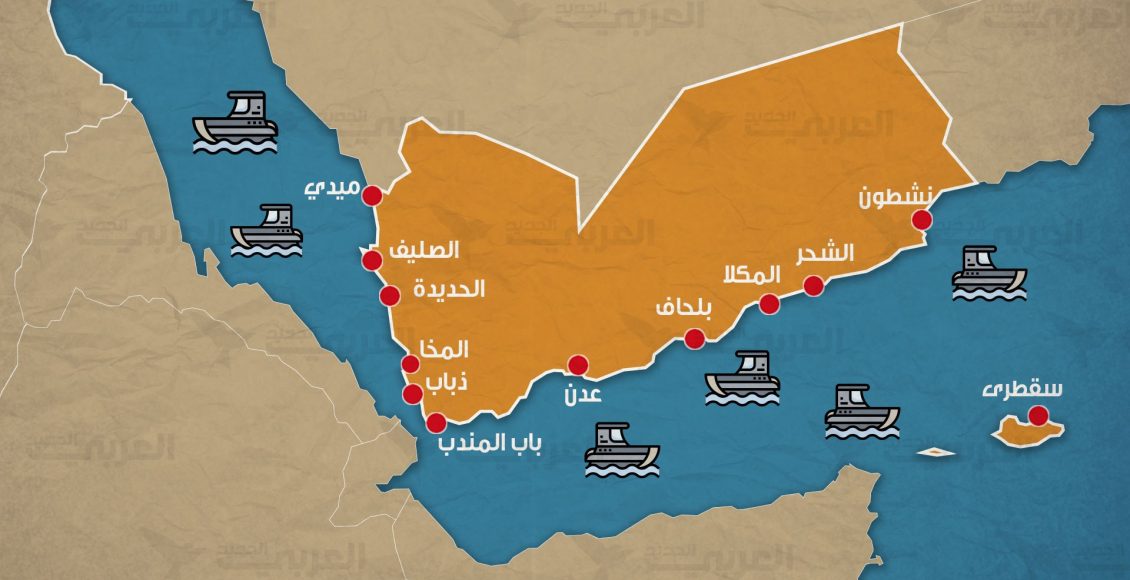ADEN, Nov. 06 (YPA) – The areas under the control of the Saudi-led coalition have experienced a significant escalation in economic and administrative pressure, after the directives by the head of the coalition-affiliated Aden government, Salem Saleh bin Braik, to close a number of vital ports.
Activists close to the coalition circulated a document showing a directive issued by the head of the government, bin Braik, who resides in the Saudi capital, Riyadh, to the governors of the provinces of Hadramawt, Shabwa, Mahra, and Lahj.
The directive obligates the governors to completely and immediately close four major ports on the Arabian Sea and the Gulf of Aden: Ash-Shihr, Qana, Nishtun, and Ras Al-Ara. The deadline for implementing this closure expired on Thursday. The document included strong warnings of unspecified “measures” against any party that refuses or fails to implement the decision.
The decision to close the ports comes within the framework of an ongoing war against Yemen since March 2015. It is nothing more than a new link in a long chain of destruction of the country’s infrastructure, which included the closure of Al-Rayyan Airport in Mukalla during 2016 by Emirati forces and Al-Ghaydah Airport in Mahra at the end of 2017 by Saudi forces, in additional to the disruption of the work of many ports, pushing the Yemeni people to the brink of an unprecedented humanitarian and economic catastrophe.
The Aden government has justified the decision to close the ports instead of managing them under the pretext of “reducing smuggling operations” through those ports. The decision came based on directives from the head of the Saudi-formed Presidential Leadership Council (PLC), Rashad Al-Alimi, who resides in Riyadh, and in a way that often serves foreign agendas.
The decision to close these ports cannot be separated from the context of the systematic destruction of vital infrastructure in Yemen since the beginning of the war in 2015. The government’s priorities should have focused on reopening the airports, which have been closed to millions of citizens in eastern Yemen, enabling them to travel, especially since these airports have been transformed into foreign military bases. This closure further isolates these areas and exacerbates the suffering of patients who need urgent medical treatment abroad.
The port of Mocha, west of Taiz and near the Bab al-Mandab Strait, which is controlled by Emirati forces, was exempted from the closure decision. This discrimination raised fundamental questions about the true criteria behind the closure of other ports, suggesting that these decisions have become tools to serve regional competition and economic dominance at the expense of vital interests and the suffering of the Yemeni people.
Therefore, the closure of these ports will exacerbate the already dire economic crisis facing citizens in those provinces, paralyzing trade for thousands of fishermen, merchants, and shop owners. It will also lead to a dramatic increase in the prices of goods.
Concurrently with the port closure decision, the PLC and its government approved raising the customs exchange rate from 750 Yemeni riyals to 1,500 riyals, aligning it with the black-market rate. This will deliver a severe blow, triggering a devastating wave of inflation and soaring prices for all goods in the markets, including food and medicine.
AA


